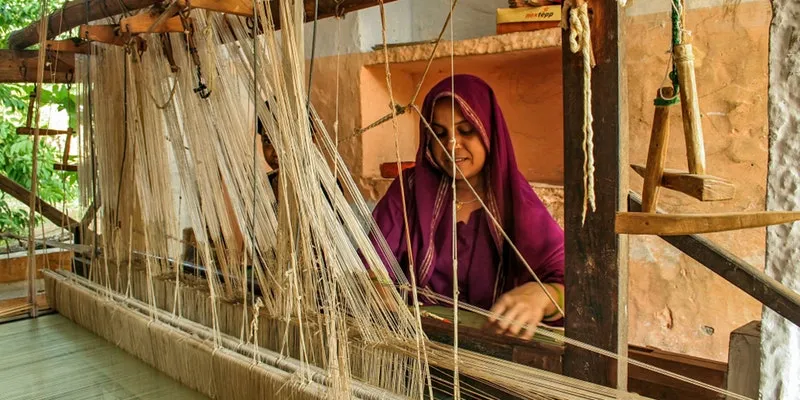What can help MSMEs recover in the post-COVID world?
While charting out a successful path for Indian MSMEs to help pave the road for India’s socio-economic recovery, we should not miss out on not capitalising on these trends and encourage more women entrepreneurs to pick up the baton.
During the COVID-19 pandemic, the Micro, Small and Medium Enterprises (MSMEs) sector was among the worst hit, with nearly 5,907 businesses shutting down during FY 2020-21 and 2021-22.
Besides COVID-related stresses, MSMEs faced financial difficulties, a lack of workforce, high material costs, and logistical disruptions, leading to challenging business outcomes.
With the present geopolitical turmoil between Russia and Ukraine, MSMEs are likely to see a further impact on supply chains and fuel inflation. India is home to about 75 million SMBs, as per Zinnov. Ranging from manufacturing to services, Indian SMBs contribute a significant chunk (nearly 30 percent) to the country’s GDP through national and international trade.
Industry body CII estimates that MSME sectors employ about 12 crore people and account for half of India’s exports.
Interestingly, as of March 2022, India is home to over 895,000 women-led MSMEs. This number has increased by over 75 percent from 4.9 lakh units in the previous fiscal year.
While this is an indicator of changing times, the rise of digital platforms is enabling traditional and new-age businesses to harness the power of online to unlock great potential and growth. They are using this not just to recover but also to grow their business through the direct-to-consumer (D2C) route and international expansion.
While charting out a successful path for our MSMEs to help pave the road for India’s socio-economic recovery, we should not miss out on not capitalising on these trends and encourage more women entrepreneurs to pick up the baton.
To build an economically resilient society, women’s participation is a game-changing dynamic that encourages not just financial literacy and independence but also propels social progress, enabling more women to become equal contributors in various roles.
As per a Bain & Co report, women-led enterprises have the potential to create 150-170 million jobs in India by 2030.

Government schemes for a lease of life
While Indian MSMEs are crucial to our economic recovery, many MSMEs are still continuing to recover from the wrath of the pandemic. Despite this, the health of MSMEs is improving as liquidity pressures ease off, and there is an increased credit flow and a more stable supply chain enabling them to breathe easily.
In fact, 11.5 million MSMEs have utilised the government’s guarantee scheme and are gaining impetus, slowly paving their way back to pre-COVID numbers.
During this year’s Union Budget, Finance Minister Nirmala Sitharaman said the government’s Emergency Credit Line Guarantee Scheme (ECLGS) would be extended to March 2023, while expanding its cover by another Rs 50,000 crore to Rs 5 lakh crore.
Under the scheme, the government has provided a new lease of life to 95.2 lakh borrowers via Rs 2.28 lakh crore. A recent survey found that 68 percent of Indian MSMEs were optimistic about their growth and business outcomes.
Software remains hot
As per a NASSCOM report, global enterprises and SMBs are choosing Indian software service providers because of their customised pricing, allowing them to buy and scale in other geographies.
Calling it an ultimate watershed year for India’s IT industry, the industry body said, in 2021, the industry grew by 15.5 percent annually across services, startups, and multinationals.
Today, Indian small businesses have a massive opportunity to not just unlock their potential but also contribute meaningfully to India’s socio-economic progress.
In this journey, they can create jobs that pump capital into the local economy, creating a multiplier effect across industries. By utilising government schemes, upskilling themselves for the digital economy, and handholding women entrepreneurs to chase their business dreams, we have the potential to create a rock-solid business environment for SMBs and enterprises of all sizes.
To help boost India’s social and economic growth, we must ensure our SMBs have the right tools to make this happen.
Edited by Suman Singh
(Disclaimer: The views and opinions expressed in this article are those of the author and do not necessarily reflect the views of YourStory.)





1551791705233.png?mode=crop&crop=faces&ar=1%3A1&format=auto&w=1920&q=75)


